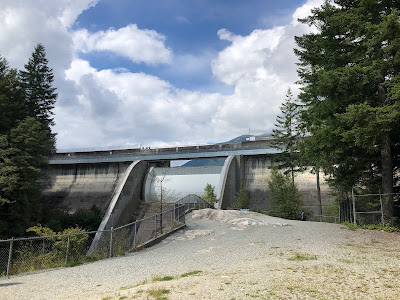In all municipalities in BC, local governments apply development cost charges (DCCs) for new development and redevelopment projects. These charges help "growth pay for growth." Put another way, every new development project puts demands on our water, sewer, storm sewer, streets, schools, transit, and parks. DCCs help pay for expansion projects due to population growth.
In Langley City, the municipality has its DCCs rates. There are also DCCs applied by the Metro Vancouver Regional District, School District 35 (called a School Site Acquisition Charge), and TransLink.
The following table shows the breakdown of charges in Langley City.

|
| Table of Development Cost Charges in Langley City. Select the table to enlarge. Source: Langley City's website. |
The Metro Vancouver Regional District Board is exploring significant increases in regional water and sewer DCCs as significant water and sewer projects are in the works, required due to population growth. We will also need new regional parkland for our growing population.
One of the challenges is that municipalities and TransLink need to increase their DCCs too.
While DCCs help capture some of the "profit" for the public good, setting the rate too high results in higher housing costs.
Not to get into the weeds, but municipalities can also negotiate further "profit" capture from development via Community Amenity Charges and Desntiy Bonsuing. Again, municipalities must be mindful that these negotiated benefits don't contribute to making housing unaffordable.
In BC, the province is asking local governments to approve building more housing as fast as possible, as we are in a housing crisis. We continue to accept newcomers to support our economy and build a more resilient country.
As I noted earlier, we will need new regional water and sewer infrastructure to accommodate this growth. DCCs cannot be the primary way to fund expanding critical regional water and sewer infrastructure. In Metro Vancouver, tens of billions of dollars of water and sewer infrastructure are required to accommodate population growth. If DCCs primarily funded this infrastructure, we would have sky-high DCCs, increasing the cost of housing.
As the federal government plays a vital role in population growth, it should also play a vital role in funding critical infrastructure required for our growing population.
If the federal government stepped up its water and sewer infrastructure funding, the regional district wouldn't need to increase DCCs as high, which could help stabilize the cost of housing.


No comments:
Post a Comment